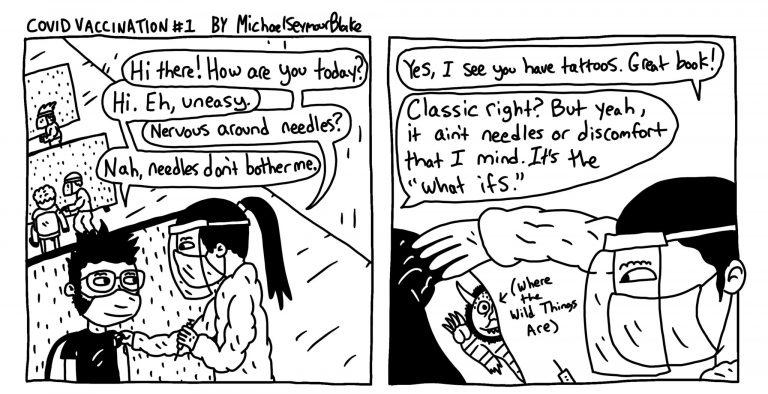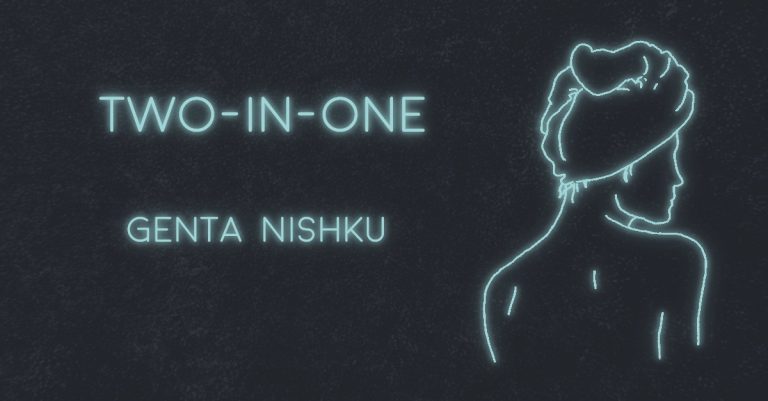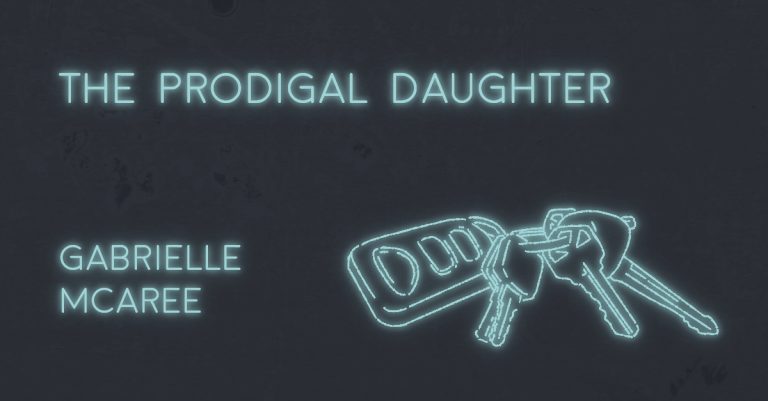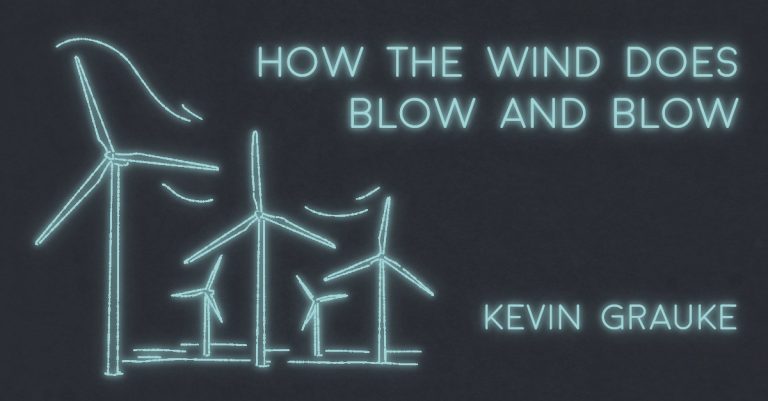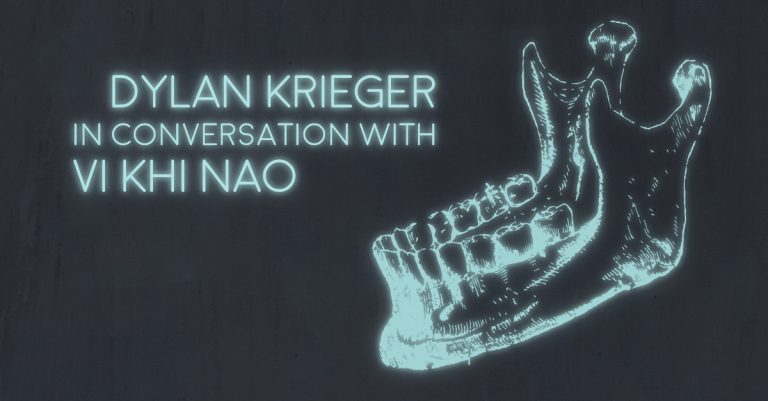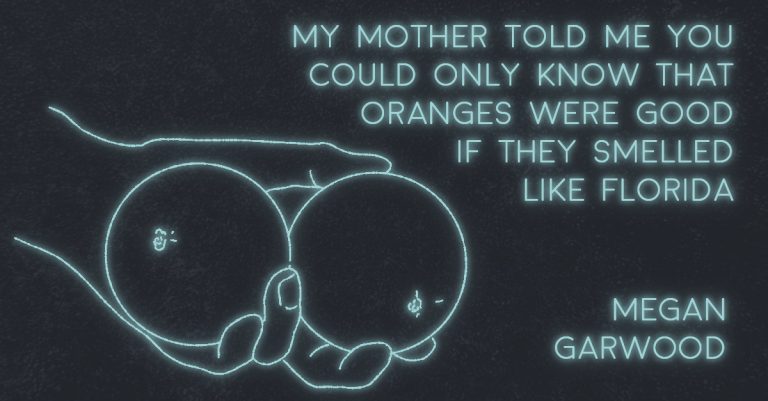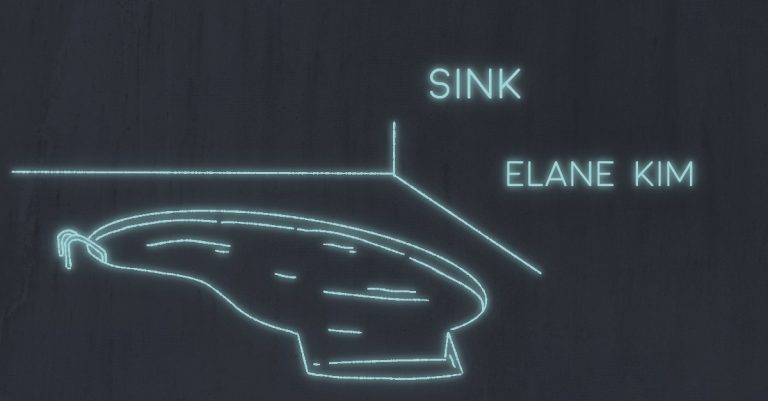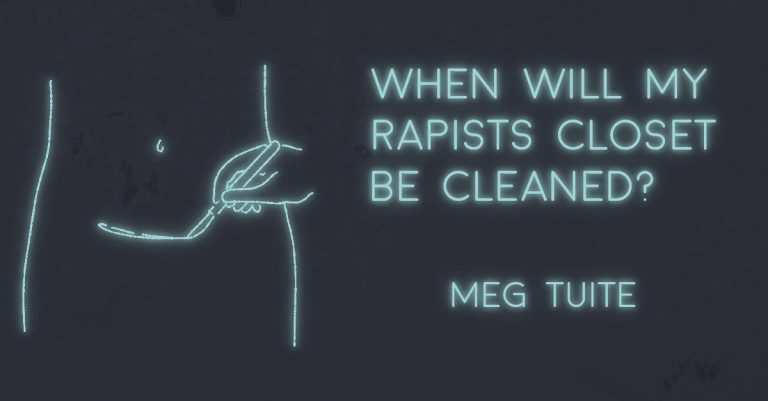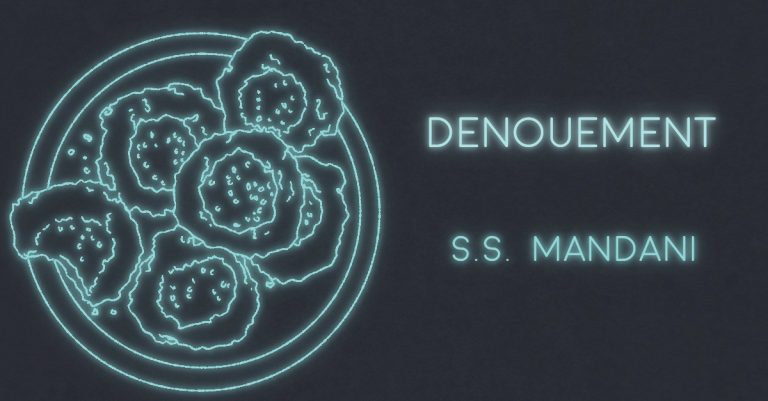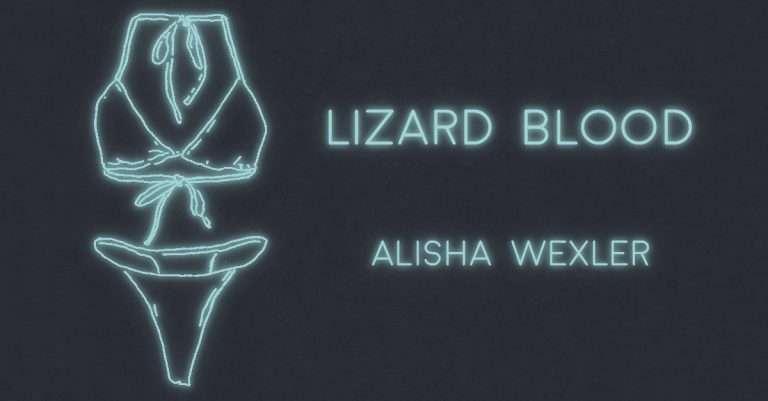
LIZARD BLOOD by Alisha Wexler
Tuesday I wake up damp with a clenched jaw. Dirty towels on the ground reeking of mildew. Why do people record their dreams? Dreams are trout in bare hands—let them slip free! Mine are so generic anyway. I pluck out my teeth one-by-one like daisy petals. He loves me, I say with blood pouring down my hand, he loves me not. I move on. I weasel out of New York lease. I get out of bed. I go into the bathroom. I put on the clammy moist bikini hanging over the shower rod. I lay by the kidney-shaped pool in

